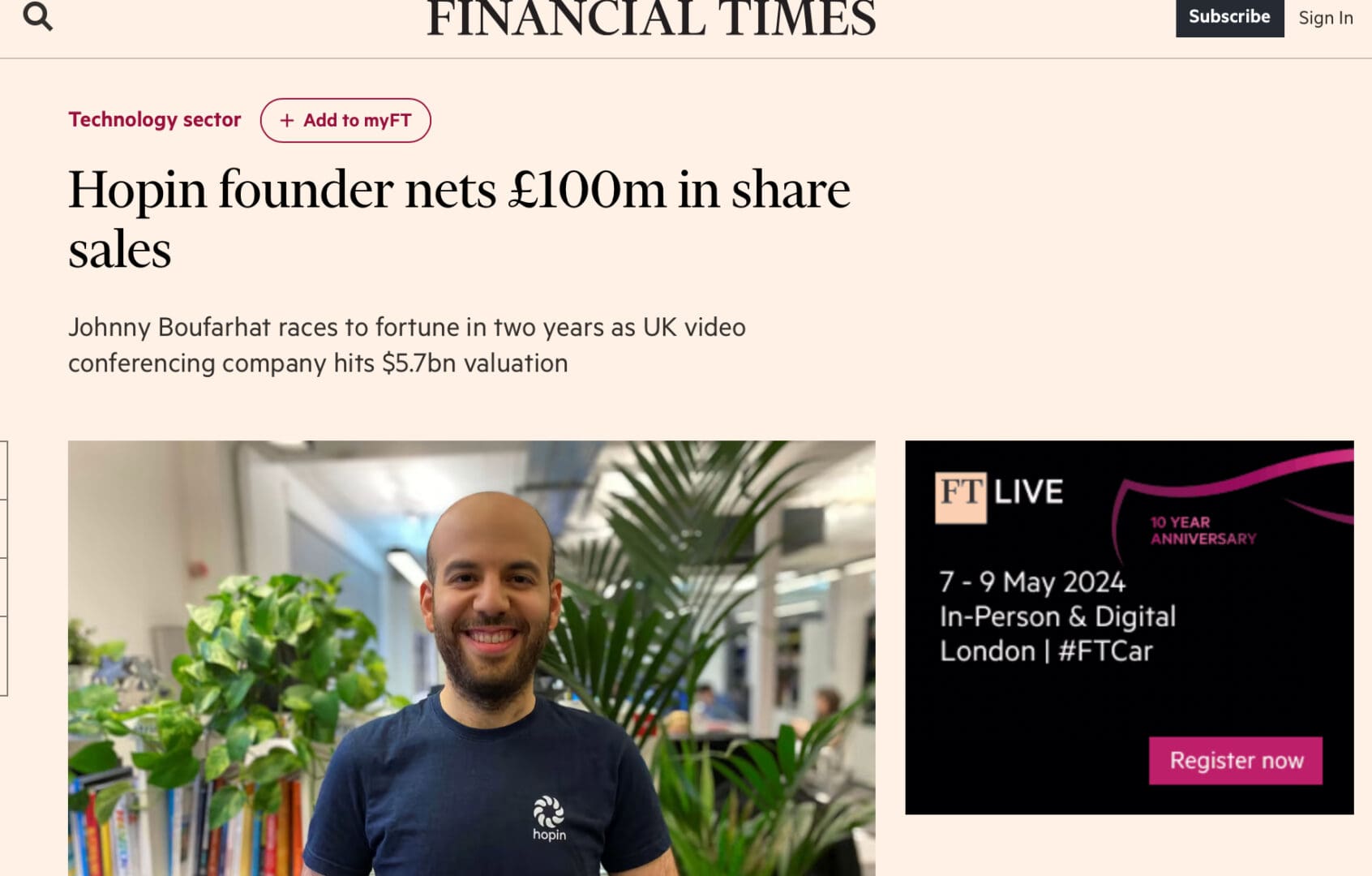So the other day I did a 20VC with Harry Stebbings, and one of the topics that came up was the Hopin founder‘s $100m+ secondary that the CEO took out of the company. While the company is still around, the Hopin product was subsequently sold for pennies on the dollar to RingCentral. And in fact, the product was already in decline by the time the CEO took $100m+ out. The investors make nothing, the product is in trouble, and yet the founder cashed out $100m+ and moved to the beach in Spain.
Some see this as a hero move. But It always bothered me. But why? I didn’t really know why until I dug in with Harry:
If VC’s were willing to hand a founder $100m to buy some of their shares, what’s wrong with that? Doesn’t everyone go into this as adults? Weren’t those sophisticated VCs? Isn’t venture capital, well risk capital?
For sure. And look, I’m all about Founder Power and I firmly believe, and have for many, many years (and written about it on SaaStr), that founder secondary done right is a great thing. If founders have been at it for 5+ years, and the business is truly at scale, and past the risk stage, then helping them sell some shares can be just the right thing to help them go long. I believed it then, I believe it now, and as a SaaS founder, I wish I’d taken some of the founder secondary offered to me. It would have pushed me not to sell.

But … but … here’s the thing. Traditionally, founders came last. Even in secondaries.
What I mean is, for founders, the order of priorities was basically:
- First came the team. Get the best and keep them happy.
- Second came the customers. A close second, but ultimately the team is more important.
- Third came the investors. They took a huge bet on you. That used to be a big deal.
- And last came the founders. Yes, if everything went well, they’d make the most and have the biggest impact. But they came last until then. They were going long, after all. This was true for secondary liquidity, too. Once the company, the customers, and the cap table were all in good shape, and at the “Unstoppable” phase — then sure, take some liquidity after 4-5 years to truly go long and help build something generational.
My “problem” with Hopin I realized wasn’t the money. If you build something truly great and important in SaaS, you should make $100m+, or more.
Not the issue, is that the founder put themselves first, above everyone else. Like at WeWork. When something goes bust or close to it, but the founders make out like bandits, well … that’s not how I was raised. Or the type of founder I was.
In fact, when we sold EchoSign to Adobe, we had a second offer than was worse for the founders, but better for the investors. I advocated we take that offer, even though I’d personally make millions less. Because it was good enough for me, but much better for the investors.
Maybe that was too extreme, I don’t know.
But what I see today is many founders putting themselves higher up on that list above. I don’t see it at the truly most successful startups. But I do see it at ones that are close to the top.
The issue is that it undermines trust in the investing, and hiring, processes if the founders don’t come last. Mock VCs if you want. But investing in startups requires a tremendous amount of trust. Trust the founders won’t just take the money and run (it happens, in earlier stage investments). Trust the financials will be accurate (way too often, they aren’t). Trust the founders will honor their commitments. Venture Capital just doesn’t work properly without trust.
Break it, it’s tough to get it back. And it’s tough for your investors to back you going forward.
Is this just the world we’re in now? So much has changed the past 3-4 years. Do founders now come first?
Maybe. It’s just not how it worked in the world of Pirates & Romantics I was raised it. It’s not how the founders I worked for … worked. Not for the most part.
I’ve never lost my investors money ever, and would have gone down on the ship trying not to. Today? I’m not sure 90% of founders care. Is that better? I don’t know. It’s different.
What I do know is the founders that put themselves last like this, I put first. I’ll have their backs forever. No matter what the outcome or returns.
The other day, I had a somewhat similar issue in my portfolio. The details don’t matter, and the scale was much smaller. I pointed out to the founder that in my opinion, what they were doing was wrong. Putting themselves so far ahead of the team, the customers, and the investors who truly believed in them. The response was interesting: “What do you care? It’s not really your money.”
I guess that said it all.
__________________________

